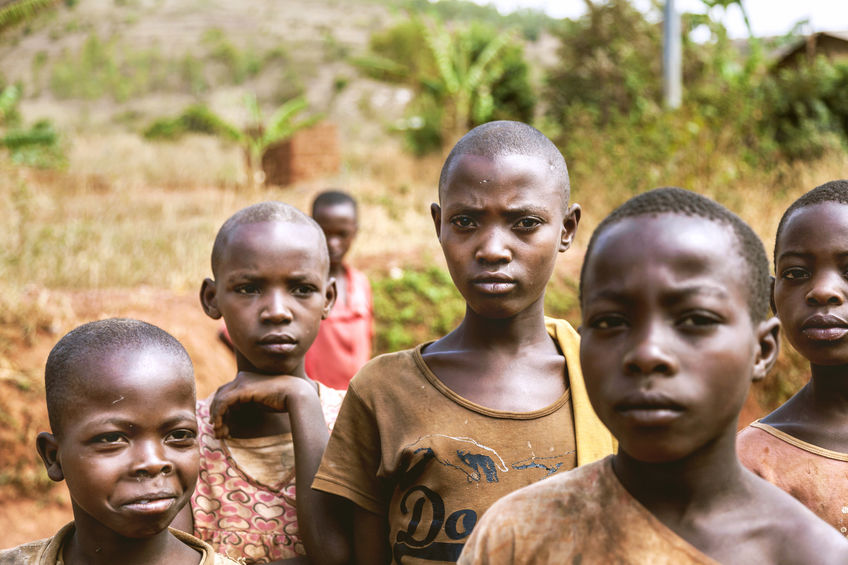In 1985, Michael Jackson and other American musicians tried to channel a spirit of global unity by releasing a collaborative song titled “We Are the World.” The purpose was noble, namely to raise funds for Africa which was going through a severe famine at the time.
Today, famine, disease, and lack of electricity still persist in the developing world, especially sub-Saharan Africa. But the spirit of unity once touted by Western elites has changed somewhat – and not for the better. Rather than rally the world together to help the least fortunate grow food or build, today’s elites call for so-called “climate action” and “sustainability” – whether those of African nations agree or not.
In prior years, much of the developing world was given a pass when it came to pursuing the trendy renewable energy policies of the West. This was because they were expensive and burdensome for nations with struggling economies. Now, it seems being given a “pass” on joining the climate-bandwagon may no longer be an option.
John Kerry set the stage for this change of heart when he addressed the United Nations COP21 meeting in Paris in 2015, saying: “If all the industrial nations went down to zero emissions – remember what I just said, all the industrial nations went down to zero emissions – it wouldn’t be enough, not when more than 65 percent of the world’s carbon pollution comes from the developing world.”
His sentiment is now becoming international policy, as the World Bank recently announced it will be significantly scaling back its funding of new fossil fuel projects for the developing world, in part due to a push from the Biden Administration.
At face value, this may seem like a fair-minded idea. Yet even in the technologically advanced U.S., wind and solar only provided less than 4% of America’s energy needs in 2018 according to the Pew Research Center.
How then will Africa, with far less electrical infrastructure in place than the U.S., begin providing power to the 46.7% of Sub-Saharan Africa (according to the World Bank) that doesn’t have access to electricity?
The data on electrical generation isn’t the only roadblock to the West’s reckless push for global climate action. The sense of unity from Western elites to focus on climate change in Africa instead of access to basic goods and services is missing one key player: young Africans.
The African Youth Survey 2020 by the Ichikowitz Family Foundation published comprehensive interviews and results from polls conducted with thousands of young Africans between the ages of 18-24, with 46% saying they were currently students.
Specifically, the Survey addresses how Africans feel in regard to economic development, environmental protection, technology, and optimism of the continent’s future.
When specifically asked what the most important issue for Africa for the present day is, only 2% of respondents said, “climate change.” In fact, climate change ranked 14th out of 17 answers given.
Of course, like those elsewhere in the world, they do show a natural concern for the environment. Many voiced concerns not so much with global warming, but with more tangible eco-problems like plastic recycling, access to water, and combating poaching.
Clearly climate change wasn’t high on their priority list. So what was?
When asked what they would do with $100, 49% said they would invest or start a business, and of those respondents 53% said the biggest barrier to starting a business in Africa was access to capital.
Finally, respondents voiced support for African nations taking responsibility for their own role in climate talks on the world stage. According to the Survey: “This is contrary to what many UN negotiators have argued for decades at the UN Climate Change Conference meetings. Since the Kyoto Protocol was adopted, progress hinged on whether the West would subsidize investments in renewables and clean technology for countries currently in development.”
So this begs the question: why is the United Nations, World Bank, and Biden Administration so focused on drastically changing the way African nations obtain their electricity and build their infrastructure? It strikes one as though the Colonial powers still want to impose their priorities on developing nations — a form of eco-imperialism.
Of course, proponents of pushing climate policies on developing nations claim that investing in sustainability will not just help the planet, it will create jobs and help the economies of African nations. After all, in President Biden’s first State of the Union address he quipped: “When I think climate change, I think jobs.”
Yet Germany’s renewable energy push seems to tell a different story.
Germany’s famous Energiewende, or “energy transition,” initiative, has run into some serious bumps. According to Reuters, Germany has the highest electricity bills in Europe, as more than half of energy bills “are made up of taxes and fees, most of which support the transition away from coal, gas and nuclear power.”
Author and analyst Michael Shellenberger wrote in Forbes in 2019 that Germany’s emissions reductions have “flat-lined since 2009,” and that from 2014-2019, Energiewende cost Germany $36 billion annually.
“All of which raises a question,” Shellenberger notes, “if renewables can’t cheaply power Germany, one of the richest and most technologically advanced countries in the world, how could a developing nation like Kenya ever expect them to allow it to ‘leapfrog’ fossil fuels?”
That indeed is the million-dollar question.
This article originally appeared at Real Clear Energy
